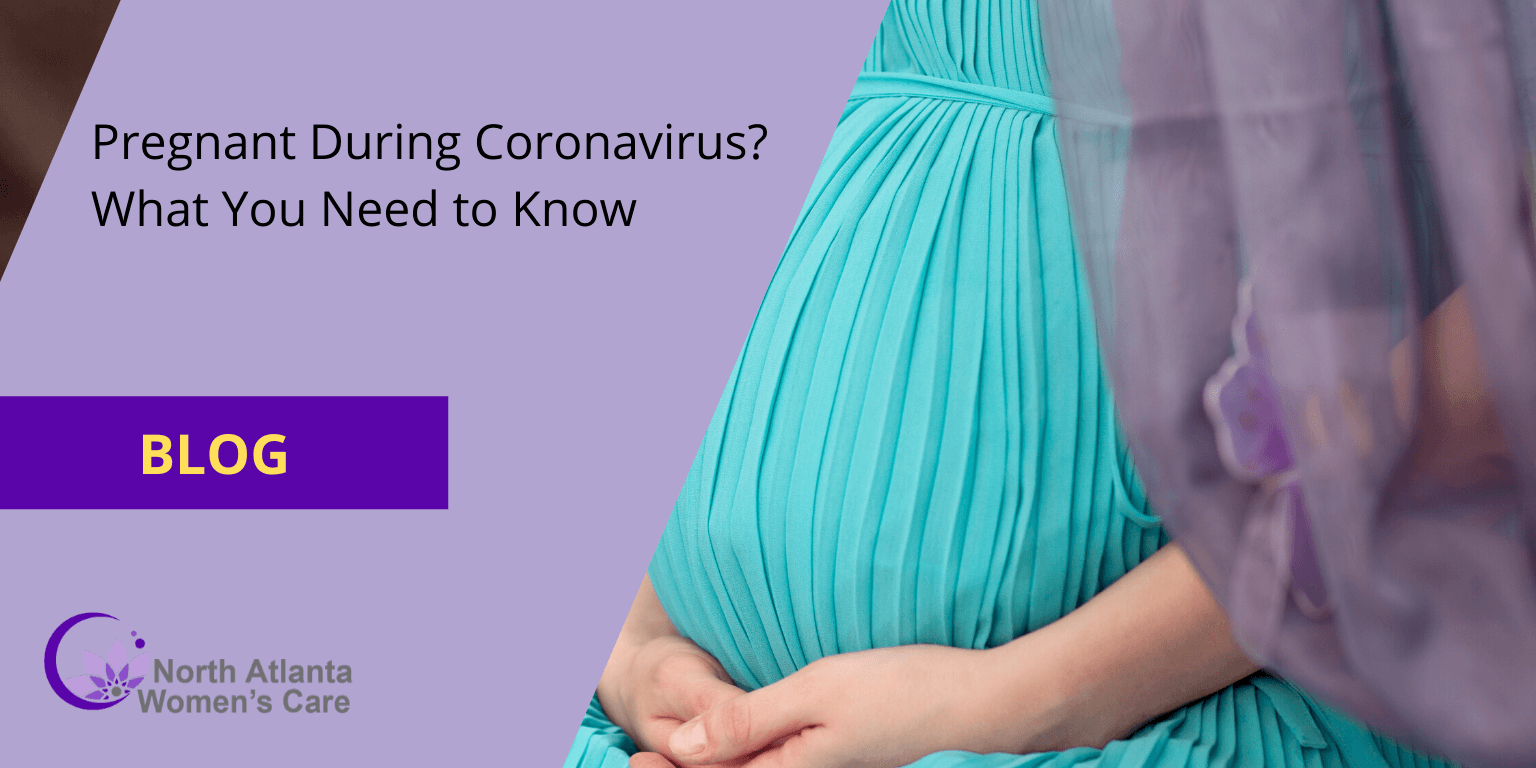Pregnant During Coronavirus? What You Need to Know

With the coronavirus rapidly impacting the world, pregnant women might have concerns for themselves and their babies about the care and advice they should follow. However, being informed about the current situation and preparedness to fight coronavirus are the best ways to stay safe and healthy.
Here is what you need to know if you are pregnant or preparing to deliver during the COVID-19 outbreak:
Pregnant Women and Their Risk of Catching the Coronavirus
According to the American College of Obstetricians and Gynecologists, current data of COVID-19 does not indicate that pregnant women are at a higher risk of catching the coronavirus. Generally, pregnant women can experience several changes and become immunocompromised, so they may become more susceptible to respiratory infections like flu. It is recommended to follow good personal hygiene and social distancing to avoid catching any respiratory infections.
Miscarriage or Preterm Labor
There is no evidence to show that a pregnant woman with COVID-19 has an increased risk of miscarriage. However, during the SARS (Severe Acute Respiratory Syndrome) coronavirus epidemic from 2002 to 2003, pregnant women who were severely infected with the virus were at a slightly higher risk of miscarriage.
A pregnant woman who has viral infections like the flu may experience problems like preterm birth and low birth weight. Having a high fever in early pregnancy may increase the risk of birth defects, including the neural tube defect and how the body parts look and function, but the overall occurrence of such defects is still low.
Can the Baby Get the Virus from the Infected Mother?
A study reveals that nine pregnant women who were infected with the COVID-19 have not passed the infection to their babies. The virus was not found in breast milk or babies’ throat. Another study of 38 pregnant women with COVID-19 showed that none of the newborns is diagnosed with the disease.
However, a case report of 33 pregnant women infected with SARS-CoV-2 revealed that three newborns were later diagnosed with COVID-19. It is still not clear whether the infection has spread to the babies while they were in the womb or they got the infection after birth through the close contact with their mothers, as the newborns were tested after a few days of their birth.
Overall, the risk of passing the infection to a fetus is low, and there is no evidence to show that a pregnant woman with COVID-19 can pass the virus to her baby in the womb.
Do You Need a C-section Delivery?
Having the coronavirus infection is not a reason for a C-section, and no evidence indicates which birth method (vaginal or C-section) is safer during the COVID-19 outbreak. There is limited data on the research. Other coronavirus infections are not known to spread to the child from vaginal birth.
The Society of Maternal-Fetal Medicine and the American College of Obstetricians and Gynecologists emphasizes that the delivery time should not be determined by the mother’s COVID-19 diagnosis. Women who are infected early in pregnancy and recovered should not see any changes in their delivery schedule. The time of delivery can be postponed for the women who are infected later in pregnancy, as long as no other medical complications arise, until they are tested negative.
Delivery in a Hospital or Home – Which is Safer?
It is always safe to deliver a baby in the hospital or birth center, as you will have a team of healthcare experts and staff who are trained to protect you and your baby from COVID-19 and handle any unexpected complications. Please consult with your team of medical professionals to help you determine which type of birth setting is right for you.
Breastfeeding During COVID-19
There is no evidence to show that the virus was found in the breast milk of pregnant women infected with the coronavirus. However, it is advisable to follow some precautions. Breast milk is an important source of nutrition for infants and protects them against many illnesses.
However, the CDC recommends that women who are about to breastfeed should be provided with a breast pump to pump their milk and maintain milk supply. Breastfeeding women should wash their hands before touching the bottle or pump parts. If possible, have a healthy person to feed the expressed breast milk to the infant.
How Can Pregnant Women Protect Themselves During the COVID-19 Outbreak?
Follow these simple tips to avoid catching the virus:
- Practice good hand hygiene by regularly washing your hands with soap and water
- Avoid touching your face with unwashed hands
- Avoid contact with people who are sick or have been exposed to the virus
- Practice social distancing
- Include vitamin-C foods in your diet
- Get plenty of rest
- Consume more liquids to keep you hydrated
- Visit your healthcare provider if you have a mild cough or cold
If you are a pregnant woman and expected to deliver during coronavirus pandemic, contact North Atlanta Women's Care at 770-771-5270. Our experienced staff can help and support you through every step of your pregnancy journey.
Comments are closed

